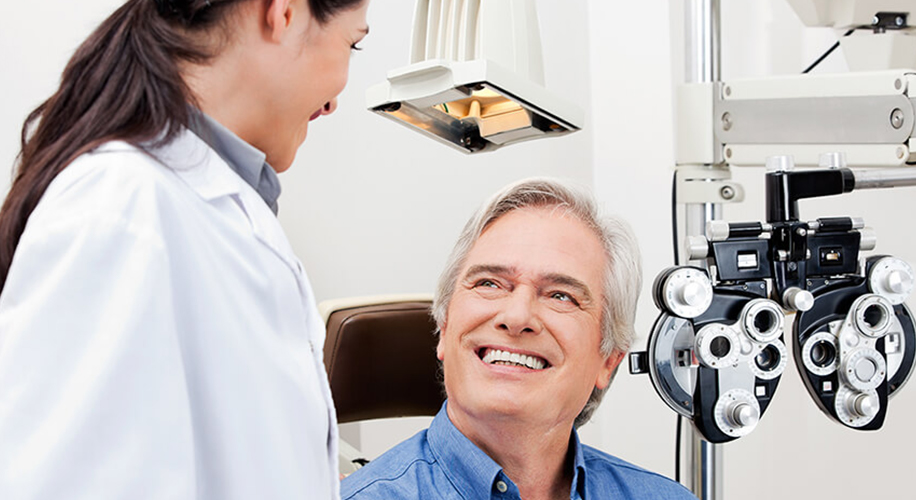The Importance of Regular Eye Exams for Eye Health
- BY Steven Lee
- IN Eye Care
Let’s explore the significance of regular eye exams in maintaining optimal eye health and delve into the common misconceptions surrounding eye exams and highlight their crucial role in detecting potential eye diseases and conditions. We will discuss the various components of a comprehensive eye exam, such as visual acuity tests, dilated eye exams, and tonometry, and explain how each test contributes to assessing one’s eye health. Moreover, we will emphasize the importance of early detection and the potential consequences of neglecting regular eye exams. By the end of this blog post, readers will have a clear understanding of why scheduling regular eye exams is an essential part of maintaining good eye health and overall well-being.

The basics of eye exams
A comprehensive eye exam is a vital tool in evaluating and maintaining eye health. It involves a series of tests and evaluations performed by an optometrist or ophthalmologist to assess the health and functionality of your eyes.
Who should get regular eye exams?
Eye exams are recommended for individuals of all ages. From young children to seniors, regular eye exams are essential for detecting eye conditions and ensuring clear vision. Even if you have no vision problems, regular eye exams can help identify potential issues early on.
How often should you get an eye exam?
The frequency of eye exams depends on various factors, including age, overall health, and any existing eye conditions. As a general guideline, adults aged 18 to 60 should have comprehensive eye exams at least every two years. Individuals over 60, those with existing eye conditions, or individuals at higher risk may require more frequent eye exams.
Benefits of regular eye exams
Regular eye exams offer an array of benefits that go beyond just checking your vision. They play a crucial role in maintaining overall eye health and detecting potential issues early on.
- Early detection of eye conditions: Many eye conditions, such as glaucoma and macular degeneration, do not exhibit noticeable symptoms in their early stages. Regular eye exams can help identify these conditions before they cause irreversible damage to your vision.
- Prevention of vision loss: By detecting and treating eye conditions early, regular eye exams can prevent vision loss or slow down its progression.
- Monitoring changes in vision: Our eyesight naturally changes over time. Regular eye exams allow for monitoring and addressing any changes in vision, ensuring that you have the appropriate prescription for glasses or contact lenses.
- Identification of underlying health issues: The eyes can provide valuable insights into your overall health. During an eye exam, the eye doctor may detect signs of systemic diseases, such as diabetes or high blood pressure, based on changes in the blood vessels or the appearance of the retina.
Common tests during an eye exam
During a comprehensive eye exam, several tests and evaluations are conducted to assess various aspects of your eye health and vision.
- Visual acuity test: This test measures how well you can see at various distances. It involves reading letters or identifying symbols from a standardized chart.
- Refraction test: This test determines your exact prescription for glasses or contact lenses. The eye doctor uses a series of lenses to determine the lens power that provides the sharpest and clearest vision for you.
- Eye pressure test: This test, known as tonometry, measures the pressure inside your eyes. It helps detect signs of glaucoma, a condition characterized by increased eye pressure that can lead to vision loss.
- Eye muscle test: These tests evaluate the movement and coordination of your eye muscles. They help identify any abnormalities that may cause eye misalignment or double vision.
- Retinal examination: This examination involves dilating the pupils and examining the back of your eye, including the retina, blood vessels, and optic nerve. It helps detect signs of diseases such as macular degeneration, diabetic retinopathy, and retinal detachment.
Tips for preparing for an eye exam
Preparing for an eye exam can help ensure a smooth and productive visit with your eye doctor.
- Gather necessary medical information: Bring any relevant medical records, including information about any current eye conditions or surgeries. This will help provide a comprehensive view of your eye health history.
- Prepare questions for the eye doctor: Write down any questions or concerns you have about your eye health or vision. This will help facilitate a more productive conversation during the exam.
- Come with a list of current medications: Inform your eye doctor about any medications or supplements you are currently taking. Some medications can affect your eyes or vision.
- Bring your glasses or contact lenses: If you already wear glasses or contact lenses, bring them with you to the exam. This will allow the eye doctor to assess your current prescription and make any necessary adjustments.
Related: All About Astigmatism
Regular eye exams are a crucial part of maintaining optimal eye health and overall well-being. By detecting potential eye conditions early and ensuring that your vision is clear, these exams play a significant role in preventing vision loss and identifying underlying health issues. Don’t neglect the importance of regular eye exams – they are an investment in your eye health and can ultimately improve your quality of life.
About the Author: Dr. Steven Lee
Dr. Steven Lee is a visionary leader in the eye care and telemedicine sectors and has built a remarkable career by combining his formal training in eye care, engineering expertise, and a passion for innovation. Dr. Lee serves as Zenni’s the Head of Optical Product.